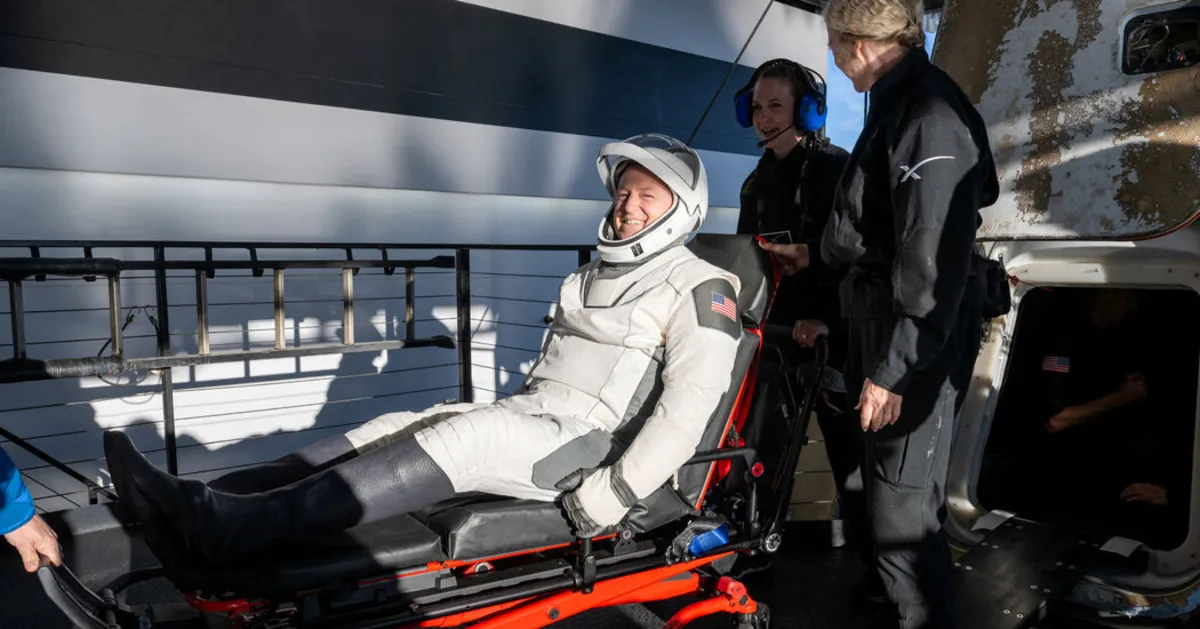
If you were to imagine an eight-day work trip unexpectedly extending to nine months, you might expect to earn some substantial overtime pay. However, this was not the case for NASA astronauts Suni Williams and Butch Wilmore, who found themselves spending an astonishing 278 extra days aboard the International Space Station (ISS) after experiencing a spacecraft malfunction. Their long-awaited return to Earth occurred on Tuesday when they splashed down off the Gulf Coast of Florida, concluding a thrilling journey that has captivated the nation since last summer.
Despite the extraordinary circumstances of their extended mission, Ms. Williams and Mr. Wilmore are treated similarly to any other government employee on a business trip. According to Jimi Russell, a spokesperson for NASA’s Space Operations Mission Directorate, “While in space, NASA astronauts are on official travel orders as federal employees.” This means that even though they were orbiting the Earth every 90 minutes, they were unable to leave their unique workplace for over nine months.
Interestingly, astronauts aboard the ISS do not receive overtime, holiday, or weekend pay, as confirmed by Mr. Russell. Their transportation, meals, and lodging are provided, and like other federal employees on work assignments, they receive a daily “incidentals” allowance. This allowance is intended to cover miscellaneous expenses incurred during their time away from their home base. Mr. Russell revealed that this incidentals allowance for travel to any location is a modest $5 per day.
Taking into account their annual salary of approximately $152,258, according to NASA, Mr. Wilmore and Ms. Williams received around $1,430 for their lengthy stay in space, which totaled 286 days. But what kind of incidental expenses might they have faced while orbiting 250 miles above the Earth? The specifics remain unclear; typically, these allowances cover “fees and tips given to porters, baggage carriers, hotel staff, and staff on ships,” as per the U.S. General Services Administration.
Despite the minimal compensation, Ms. Williams and Mr. Wilmore did not perceive their extended stay as a form of hardship. “This is my happy place,” Ms. Williams expressed to reporters in September. “I love being up here in space. It’s just fun, you know?” Their positive mindset highlights the passion and dedication that astronauts have for their work, even in challenging conditions.
While a $5 per diem may seem inadequate for a job that can lead to significant muscle and bone loss, it’s worth considering the experience of other astronauts as well. Take Clayton Anderson, for example, who spent 152 days aboard the ISS in 2007. Mr. Anderson reported receiving a per diem of only about $1.20 per day, amounting to a total of $172. He stated on social media in 2022 that while being an astronaut was his dream job, “it IS a government job with government pay.” He humorously added, “I would have done WAY better with mileage!”
In conclusion, the journey of Suni Williams and Butch Wilmore serves as a reminder of the unique challenges faced by astronauts. Despite the allure of space travel, the financial realities of being a federal employee in such extraordinary circumstances are stark. Nevertheless, their experiences continue to inspire and evoke fascination across the globe.